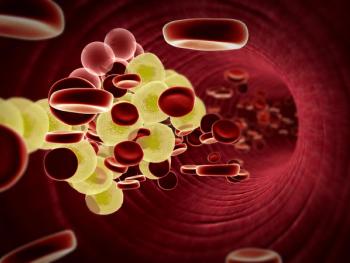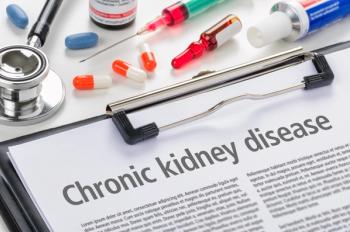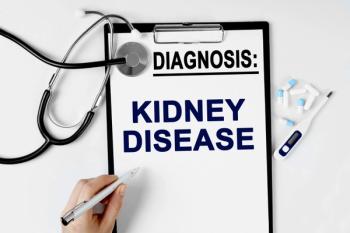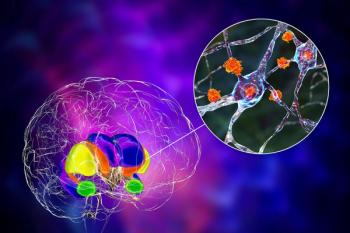
The move continues the push towards most favored nation (MFN) status, lowering the prices of glucagon-like peptide-1 (GLP-1s) drugs for Medicare recipients.

The move continues the push towards most favored nation (MFN) status, lowering the prices of glucagon-like peptide-1 (GLP-1s) drugs for Medicare recipients.

A genomic screening initiative identified patients harboring a familial hypercholesterolemia genetic variation and directed them toward LDL-C-lowering therapies, inducing meaningful reductions.

Pharmacists enhance community health by providing accessible care, managing complex medications, and fostering trust in patient relationships.

Research highlights significant barriers to contraceptive use and reproductive health management for women with chronic kidney disease (CKD), urging improved nephrology care.

The FDA has approved doxecitine-doxribtimine powder for the treatment of patients with thymidine kinase 2 deficiency developing symptoms at or before the age of 12.

Richard Kovacs, MD, underscores the pharmacist’s role in educating patients about sodium reduction, monitoring blood pressure, and ensuring safe transitions to low-sodium oxybate therapy.

Explore the risks of synthetic 7-hydroxymitragynine (7-OH) products and why natural leaf kratom is a safe alternative.

Richard Kovacs, MD, explains how switching from high-sodium to low-sodium oxybate led to meaningful blood pressure reductions and lower cardiovascular risk in patients with narcolepsy.

Although long COVID remains a complex disease, pharmacists are critical team members for patient symptom validation, managing polypharmacy, and navigating therapy access.

Experts outline innovative approaches to reduce inequities in diagnostic access and optimize patient outcomes.

As psychedelic medicines near approval, pharmacists will become essential guides in safety and education.

From embedded PrEP care to rapid outbreak response logistics, new models are showing how pharmacists can establish successful public health partnerships to enhance patient access and equity.

An index of total cholesterol, high-density lipoprotein (HDL), and fasting glucose levels was found to indicate the prevalence of type 2 diabetes in a nationally representative US cohort.

The expanded indications now include adolescents with hidradenitis suppurativa aged 12 and older and pediatrics with uveitis aged 2 and older.

Ron Lanton outlines enforcement uncertainty and downstream effects on biosimilars, specialty drugs, and pharmacy supply chains under most favored nation pricing proposals.

These negative effects were primarily presented when cells were stressed by inflammatory proteins in patients with chronic kidney disease (CKD) with APOL1 mutations.

Steven Pipe, MD, highlights the growing importance of pharmacists in hemophilia care as new therapies expand treatment complexity and require specialized expertise.

Ron Lanton explains that increased pharmaceutical tariffs could drive up costs, reduce margins, and strain pharmacy supply chains, with few mitigation options available.

The pharmaceutical giant will reportedly lower its drug prices to align with most-favored-nation status.


Ron Lanton advises pharmacies to maintain compliance, explore contingency options, and stay engaged with policymakers during the government shutdown.

A retrospective analysis found no associations between lipid parameters and the success of blood stem cell mobilization in a cohort of healthy donors.

Johnson & Johnson presented new long-term data of icotrokinra from ICONIC-LEAD, along with data from ICONIC-ADVANCE indicating head-to-head superiority with standard-of-care deucravacitinib.

The angiopoietin-like-3-targeting treatment received an expanded indication for individuals aged 1 through 5 years, building on earlier approvals in older populations.

In chronic kidney disease (CKD), SDMA showed a stronger connection to vascular health compared with ADMA.

The RNA interference therapy indicated that, along with its therapeutic benefits in cardiomyopathy transthyretin-mediated amyloidosis (ATTR-CM), there was a reduced risk of GI events.

In an announcement at the White House, Pfizer said it will reduce drug prices in the United States to match those of other countries.

AMT-130 demonstrates meaningful reductions in disease progression in the rare and chronic Huntington disease.

The new formulation of intravenous immunoglobulin (IVIG) provides patients another option to help reduce the incidence of severe bacterial infections.

A meta-analysis found that proprotein convertase subtilisin/kexin type 9 (PCSK9) inhibitors induce sustained reductions across lipid biomarkers, including low-density lipoprotein cholesterol (LDL-C).